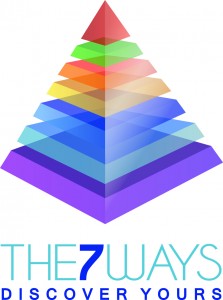Vayeshev & Channukah: The Real Conflict Between Yosef and His Brothers: On Mayor Rob Ford and The Yeshiva World & Modern Orthodoxy
Toronto Mayor Rob Ford has been in the news quite a bit recently. He’s admitted and (seemingly) been caught on tape smoking crack, intermittently admitted to binge drinking and drunk driving, and many accusations have arisen about alcohol consumption and inappropriate interactions with women. Despite Ford’s previous approval ratings and despite the many helpful and successful projects he has executed, he is now an easy target for attack—he’s been stripped of most of his powers and readily dismissed. It’s important to take note of what has happened to him, because his behavior and what he has been accused of give us a glimpse into the type of feelings that Yosef’s brothers had for him.
glimpse into the type of feelings that Yosef’s brothers had for him.
Reunion
Years after Yosef is brought down to Egypt, his brothers arrive on the scene and begin trying to obtain food for their family in famine-ravaged Canaan. They decide to look for Yosef and begin their search not in the slave market or among the house stewards of the Bourgeoisie, but, according to Bereishit Rabbah, in Egypt’s brothels [1]. The meaning of this midrash is that Yosef’s brothers associate him with physical pleasure and deep involvement in the physical world. They see someone who inordinately relates to and appreciates things like beautiful clothing and material gain. In contrast, they appreciate their separateness from the outside society and their ability to pursue more lofty endeavors.
 Yosef’s brothers expect Yosef to turn out like Rob Ford—likely even worse than him. They expect Yosef to be indulgent and flamboyant. They expect his dreams to amount to little more than economic disappointment, which would, in turn, would lead Yosef to poverty and likely criminal activity. Even if their brother somehow managed to find a management position, he’ll likely indulge and flounder, making a mockery of himself and his family. They expect Yosef to make a spectacle of himself, like Ford gallivanting about in drunken, crack-induced wildness.
Yosef’s brothers expect Yosef to turn out like Rob Ford—likely even worse than him. They expect Yosef to be indulgent and flamboyant. They expect his dreams to amount to little more than economic disappointment, which would, in turn, would lead Yosef to poverty and likely criminal activity. Even if their brother somehow managed to find a management position, he’ll likely indulge and flounder, making a mockery of himself and his family. They expect Yosef to make a spectacle of himself, like Ford gallivanting about in drunken, crack-induced wildness.
The brothers also did not like that Yosef readily mentioned his elaborate dreams to them, especially when the dreams involved them bowing down. At the same time, though, Yosef was 100% correct in the meaning of his dreams, namely, that he would be a prolific provider for his meta-family. He could indeed anticipate his time in a leadership position and generating monetary gain. In his dreams bowing down doesn’t mean subjugation for the brothers, it’s a metaphor of acknowledgment. Their sheaves were bowing to his sheaf, with this plant being a metaphor for financial success.
That having been said, Yosef’s timing was off. His mistake was that he should not have relayed this to his brothers so early. It would have been much better to wait and build trust over time, and to let the brothers witness his skills on their own.
Weltanschauung
It’s important to step back and understand that this two-sided conflict came about because of differences in personality and world-view, not a childish clash of immature tribesman.
The tense and dangerous altercations between Yosef and his brothers were based on philosophical differences rooted in their different dispositions. Yosef thinks that, in order to succeed, his family must stop mismanaging their livestock business (Sforno), and that they need to make large-scale plans and utilize interactions with the outside world. Yosef’s brothers are cautious of their interaction with the outside world and think that the business is running just fine. When Yosef’s brothers throw him into a pit and later sell him, they are not caught up in impulsive rage. They are eliminating what they think is an imminent danger to their fragile band of religious nomads.
world and think that the business is running just fine. When Yosef’s brothers throw him into a pit and later sell him, they are not caught up in impulsive rage. They are eliminating what they think is an imminent danger to their fragile band of religious nomads.
It is for these differences in worldview that people even in our times more readily blatantly criticize Yosef. He’s immature, he’s a whiner, he’s out of his element. What about the fact that his dreams were correct? It was, in actuality, a timing issue. And even if you say it is indeed immaturity, we should give the same respect to Yosef as we give to Avraham, Yitzchak, Ya’akov, and Moshe. As Avraham ben HaRambam writes (about Nadav and Avihu!), it is not a sin to clarify the misdeed of great Biblical leaders, the sin is in how you do it—it must be done respectfully. We should give Yosef the proper respect he deserves.
A Classic Issue
The interaction of religious Judaism with the outside world has been a raging debate for centuries, and it has existed since the time of Yosef and his brothers. Throughout history, rabbis and community leaders have debated the merits of utilizing information and ideas that come from outside the Jewish community, as well as commerce and recreational realms. Well-known rabbis put each other in excommunication over this issue, including such greats as Ritva, Rashba, and, of course, Maimonides, and zealous laymen get people in trouble for what they see as dangerous.
 The holiday of Chanukah has roots in the same issue. Abandoning the Jewish religion is wrong, but what about utilizing advances in math and sciences or interesting philosophical ideas?
The holiday of Chanukah has roots in the same issue. Abandoning the Jewish religion is wrong, but what about utilizing advances in math and sciences or interesting philosophical ideas?
This issue is palpable in our own times. The Yeshiva/Charedi world is more cautious about benefitting from or interacting with the “secular” world, whole Modern Orthodoxy utilizes it on varying levels (depending on the subset). This is not to fully identify the two groups as being identical to Yosef and his brothers, but the basic spectrum/dichotomy is strikingly similar and eerily familiar.
The issue is in knowing which outlook to take. You must initially “make your ears like a mill-hopper (i.e., sifter)” (borrowing an idea from Chagigah) and listen closely to which subset of Judaism makes the most sense. But then, it is crucial to evaluate your personality. What is restrictive to a Yosef is necessary for a “brother” like Shimon and Levi. What is potentially dangerous indulgence for a Shimon and Levi can be innocuous to a Yosef.
be innocuous to a Yosef.
To understand the strengths and weaknesses of your personality click here
Personality
We must take responsibility to be fully aware of the strengths and weaknesses of our personality. If we need more boundaries to keep us safe from indulgence and misdeeds, we must build those boundaries. If we can handle absorbing information and engaging in interactions with the outside world, then we can contemplate being more involved in it for constructive purposes. What matters is what we are honest with ourselves.
We must also work to rectify the struggle between Yosef and his brothers. We must challenge ourselves to not throw other peoples’ opinions into a pit of irrelevancy, no matter how much they bother us2]. Work hard to understand why the other side has a valid point and why different people can live by different standards and why there is nothing wrong with that in and of itself.
—-Ian
[1] Genesis Rabbah 91:6.
[2] Unless what they say is outright heresy…but I suppose that’s part of the problem here, isn’t it?






Great!
Thank you so much!